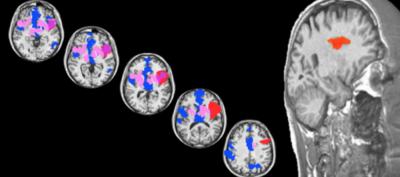[dropcap style=”font-size:100px; color:#992211;”]A[/dropcap]case for K-Hole surgery?
Let’s hope they’ve put on their wub-wub-wubber gloves.
For critically ill patients arriving at the emergency department, the drug ketamine can safely provide analgesia, sedation and amnesia for rapid, life-saving intubation, despite decades-old studies that suggested it raised intracranial pressure. The results of a systematic review of 10 recent studies of what many emergency physicians regard as a “wonder drug” are published online in Annals of Emergency Medicine “The Effect of Ketamine on Intracranial and Cerebral Perfusion Pressure and Health Outcomes: A Systematic Review.”
“Apprehension for many years about ketamine’s effects on blood pressure or injured brains inhibited its use for intubation, especially in North America compared to Europe, but our review shows those concerns are likely overblown,” said lead study author Corinne Hohl, MD, of the Department of Emergency Medicine at Vancouver General Hospital in Vancouver, Canada. “In view of recent concerns about the potential negative effects of an alternative induction agent, etomidate, ketamine should be considered routinely in patients with life-threatening infections and more regularly for patients who have been ‘found down,’ or unconscious, before being transported to the ER.”
in Vancouver, Canada. “In view of recent concerns about the potential negative effects of an alternative induction agent, etomidate, ketamine should be considered routinely in patients with life-threatening infections and more regularly for patients who have been ‘found down,’ or unconscious, before being transported to the ER.”
The most significant worry about ketamine in critically ill patients has been its effect on intracranial and cerebral pressures. Studies comparing ketamine to sufentanil, fentanyl and other pharmacological agents (vasopressors, neuromuscular blocking agents, sedatives) found no differences in intracranial and cerebral pressures of patients who had been treated with them.
Studies assessing patients sedated with ketamine found no difference in neurological outcomes compared to patients sedated with fentanyl, sufentanil, remifentanil or etomidate. Length of stay in the hospital was unaffected by ketamine use. Patients sedated and intubated with ketamine were also no likelier to die than patients sedated by other agents.
“Given the potential benefit to emergency patients and their physicians, the debate on ketamine should be settled by a large, randomized controlled trial,” said Dr. Hohl. “In the meantime, our review suggests what many emergency physicians already believe is true: Ketamine is safe and incredibly useful in critically ill patients who require rapid intubation.”
Source: American College of Emergency Physicians

Some of the news that we find inspiring, diverting, wrong or so very right.



















